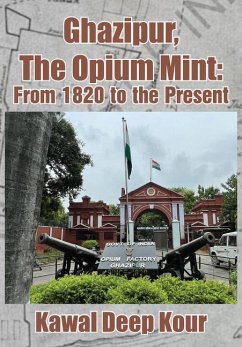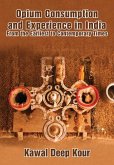The Opium Factory of Ghazipur has a history all its own. Like most other colonial enterprises, it was developed to further colonial mercantile and imperial interests. Ghazipore, as it was known in British India, was the headquarters of the Benaras opium agency, which included almost the whole of the then-United Provinces. Directed and driven by metropolitan capital, the opium factory's success signaled the rise of colonial India as a major exporter of raw opium. Nevertheless, the opium factory was not simply a site of production of "provision" opium; it was where metropolitan capital and imperial science and technology intertwined to ensure the vitality of a colonial establishment. Technology was not everything, however. Raising the standard of opium manufacturing required the services of the "opium chemist," who became vital to the efficacy of the entire operation. Colonial research focused on the extraction of alkaloids to meet the growing demand of medicinal opium and its imports to England during and after World War II. From a site of manufacture of crude raw opium, the factory evolved into a modern pharmaceutical concern that was totally redesigned and reequipped. Renamed the "Government Opium and Alkaloid Works," some elements of continuity render this 200-year old monument a legacy embodying a powerful narrative of how "opium made the world go round." This work is an attempt to revisit and uncover the many trajectories of the Ghazipur opium factory, which still remains a site of production in the twenty-first century.








